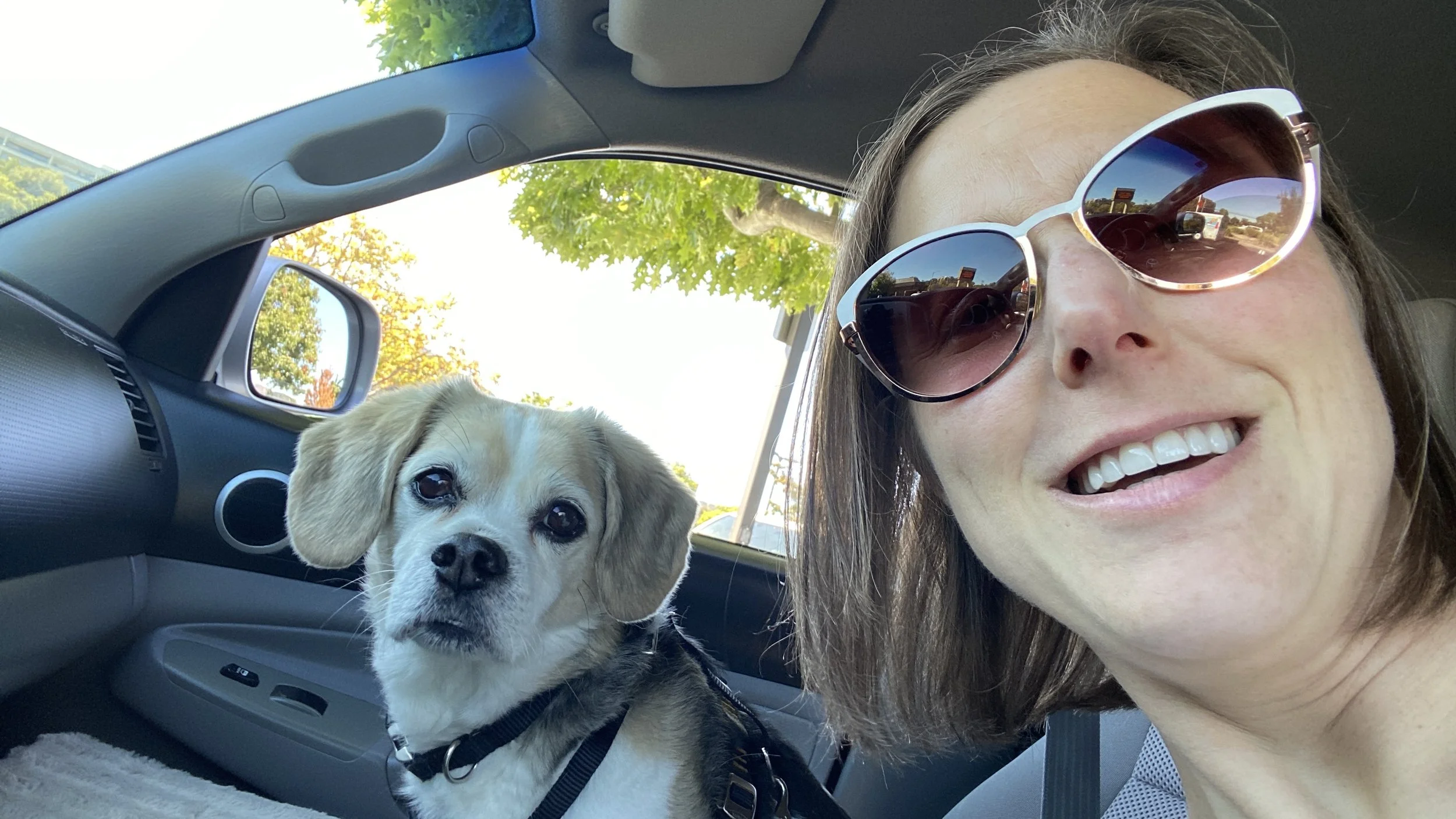Interlude: Pops of Color, Pre-Submission Inquiries, and Write-Nots
I've been feeling the weight of what's been happening in science right now. So last week, I took a last-minute road trip with the little guy. It was my first real vacation in 7 years.
About to get on the road with my little guy, Benson.
As I was driving along Highway 22 in Oregon, I saw the destruction of the 2020 Beachie Creek and Lionshead fires that burned nearly 400,000 acres, destroyed more than 1500 structures, and obliterated entire towns. At first, I felt heartbroken. The devastation went on for miles and miles.
But amid the devastation, I saw something beautiful. On the hills, I saw pops of color among the darkness of the trees that had burned. New trees were beginning to grow, and their leaves were turning red, orange, and yellow with the changing season. And I saw homes and businesses rebuilt along the highway.
This sight made me think about the destruction we are seeing in science right now. And it gave me hope that once the firestorm ends, we might see something beautiful grow and rebuild something incredible together.
Now onto this week's round-up...
💌 Round-up
💻 From My Desk
Avoid Desk Rejection: Send a Pre-Submission Inquiry First
Are you unsure if your manuscript is the right fit for a particular journal? Or maybe you have questions about the submission process that aren’t clear from the author instructions? Sending a pre-submission inquiry can be a great strategy to get answers early, avoid desk rejection, and save precious time.
📆 Upcoming
Education Sessions at the 2025 AMWA conference
The 2025 American Medical Writers Association (AMWA) conference is just a few weeks away. I'm thrilled to be presenting in two education sessions this year:
...Oh, and if you're interested in sponsoring a seminar or workshop for your group, just reply to this email. I'd be delighted to exchange ideas!
👓 Reading
Writes and Write-Nots
"AI has blown this world open. . . The result will be a world divided into writes and write-nots. There will still be some people who can write. Some of us like it. But the middle ground between those who are good at writing and those who can’t write at all will disappear. Instead of good writers, ok writers, and people who can’t write, there will just be good writers and people who can’t write. . . So a world divided into writes and write-nots is more dangerous than it sounds. It will be a world of thinks and think-nots."
There’s no “I” in “peer review” – or is there?
Greg: "What do you think of the advice to 'avoid first person'?"
Steve: "I’ve never seen that advice, and it seems very strange! My first inclination is to wonder what problem NSF [National Science Foundation] thinks it’s solving. I can think of two possibilities, but neither convinces me. First, maybe they’re trying to make sure reviews are “objective”. That’s why we wrote science in the passive voice for much of the 20th century. It was foolish there for the same reason it would be foolish here: it would help you pretend you’re objective, but wouldn’t actually make you so! Second, maybe they’re trying to keep reviewers focused on the science rather than the scientists, avoiding ad hominem attacks. But then it seems more productive to ban the second person rather than the first."
Journals and publishers crack down on research from open health data sets
"Last month, PLOS and Frontiers both announced submissions that use data sets such as the U.S. Centers for Disease Control and Prevention–run National Health and Nutrition Examination Survey (NHANES), which collects diet and health data on more than 130,000 people, will not even be considered, unless the researchers do additional work to confirm their findings. Individual journals are imposing similar restrictions."
Thank you so much for reading.
Warmly,
Crystal

